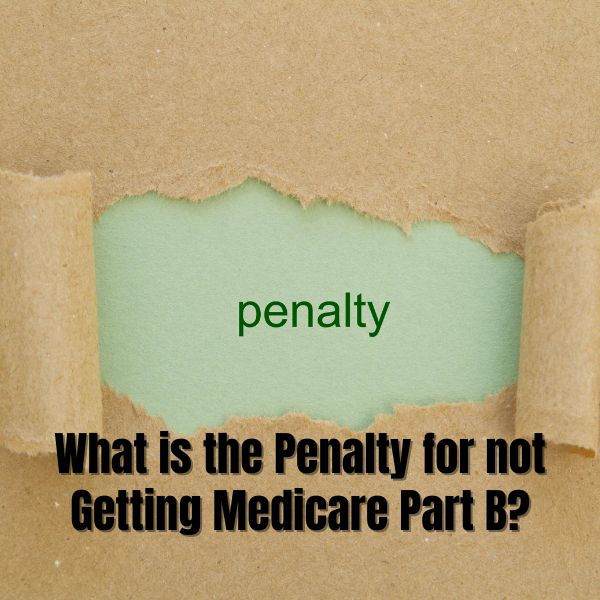
Navigating Medicare Advantage Plans: Can You Be Dropped From A Medicare Advantage Plan?
April 21, 2024
What is the Penalty for not Getting Medicare Part B: A Guide to Timely Enrollment and Cost Savings
May 9, 2024The article provides an overview of Medicare eligibility, including the age requirements and various criteria for qualifying, as well as important information about enrollment periods, penalties for late enrollment, and the different components of Medicare coverage.
Overview of Medicare Eligibility
Medicare, a cornerstone of the U.S. The healthcare system for seniors and certain individuals with disabilities, extends its eligibility to individuals aged 65 and older, as well as those under 65 with specific medical conditions such as End-Stage Renal Disease (ESRD) or Amyotrophic Lateral Sclerosis (ALS). The program is designed to ensure that all eligible individuals have access to essential healthcare coverage, aiming to reduce the financial burden of medical expenses on the elderly and people with certain disabilities.
The eligibility criteria for Medicare serve as a vital safety net, providing a broad spectrum of individuals with access to healthcare services they might otherwise be unable to afford. For example, someone diagnosed with ALS is eligible for Medicare regardless of their age, highlighting the program’s role in supporting individuals with significant health challenges.
Understanding Medicare Eligibility
General Eligibility Criteria
Generally, Medicare eligibility is also extended to individuals who have been receiving Social Security Disability Insurance (SSDI) benefits for 24 months. This includes those diagnosed with Lou Gehrig’s Disease (ALS) or End-Stage Renal Disease (ESRD), who can qualify for Medicare benefits without regard to age. This facet of Medicare ensures that individuals facing serious health issues have timely access to necessary healthcare services.
Eligibility Before Age 65
For those under 65, receiving SSDI benefits leads to Medicare eligibility after a 24-month waiting period. However, this waiting period is waived for individuals diagnosed with ESRD or ALS, allowing for immediate Medicare coverage. The Initial Enrollment Period (IEP) becomes crucial for those approaching 65, as it ensures seamless access to healthcare coverage, highlighting the program’s flexibility in accommodating the needs of its beneficiaries.
Enrollment Periods Explained
Initial Enrollment Period (IEP)
The IEP for Medicare is a seven-month window that starts three months before the month of an individual’s 65th birthday and ends three months after their birthday month. For those already receiving Social Security benefits, enrollment in Medicare Part A is automatic upon turning 65, simplifying the process for many seniors.
Special Enrollment Period (SEP)
For individuals who continue to work past the age of 65 and have employer coverage, they may qualify for a Special Enrollment Period (SEP), allowing them to enroll in Medicare without facing late enrollment penalties. This provision acknowledges the changing nature of retirement and the workforce, offering flexibility for those who delay Medicare enrollment due to continued employment.
General Enrollment Period
Those who miss their Initial Enrollment Period have another opportunity to sign up for Medicare during the General Enrollment Period, which runs from January 1 to March 31 each year. However, late enrollment might result in penalties and a delayed start date for coverage, emphasizing the importance of understanding Medicare enrollment timelines.
Late Enrollment Penalties
Delaying enrollment in Medicare Part B can indeed lead to a permanent increase in the monthly premium, with a 10% increase for each 12-month period an individual was eligible but did not enroll. Awareness of these penalties is crucial for anyone eligible for Medicare, as it can significantly impact the cost of healthcare coverage in retirement.
Medicare Coverage Components
Parts of Medicare
Original Medicare, the foundation of the Medicare program, consists of Part A (Hospital Insurance) and Part B (Medical Insurance). These parts cover a wide range of healthcare services, forming the core of Medicare’s coverage. Beneficiaries have the option to enhance this coverage by enrolling in [Medicare Advantage]. Medicare, Initial Enrollment Period, Special Enrollment Period, Premium-free Part A, Part B, TRICARE, COBRA, Marketplace coverage, End-Stage Renal Disease (ESRD)
- Medicare coverage starts based on sign-up timing and enrollment periods, with coverage beginning on the first of the month.
- Special Enrollment Periods allow for late sign-ups without penalties for specific situations like losing Medicaid coverage or being impacted by a natural disaster.
- Joining a Medicare Advantage Plan requires both Part A and Part B, while joining a Medicare drug plan only needs one of the two parts.
Additional Medicare Options
Medicare Advantage Plans, for instance, provide a comprehensive coverage option by bundling the benefits of Parts A and B with extra services. Similarly, Part D plans deliver essential prescription drug coverage, ensuring beneficiaries have access to the medications they need at more affordable rates.
Anticipating Medicare: Health Insurance Options
For those nearing the age of Medicare eligibility, exploring alternative health insurance options like COBRA, marketplace insurance, or spousal coverage can help bridge any coverage gaps before enrolling in Medicare. Understanding these options allows individuals to maintain continuous healthcare coverage and make informed decisions as they transition to Medicare.
We’re Here to Help
Navigating the Medicare enrollment process can be complex, but Green Insurance Agency is here to help. Our experienced agents specialize in guiding individuals through the intricacies of Medicare, ensuring they understand their options and make the best decisions for their healthcare coverage needs. For expert guidance on Medicare and personalized enrollment assistance, contact Green Insurance Agency at (904) 717-1176 or visit our website for more information.
